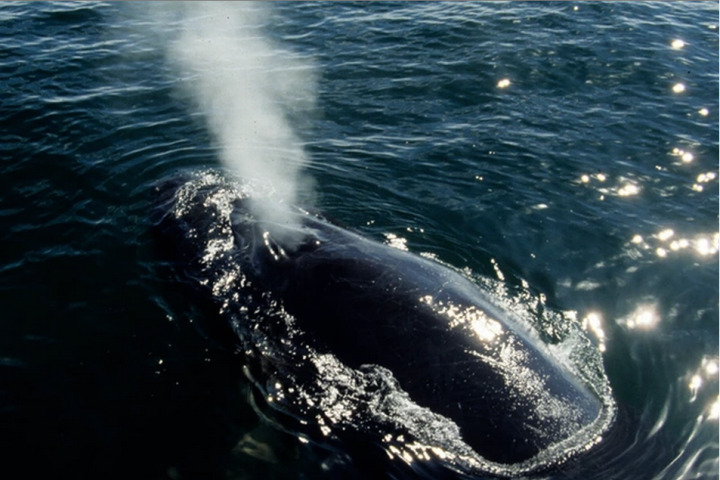
So what exactly is this project seeking funds for? Well, in a nutshell, what Ocean Alliance wants to do is build a fleet of drones capable of collecting whale snot. I realize that probably sounds ridiculous — and it is — but it’s also pretty brilliant.
Right now, the methods that researchers use to gather biological data on whales are somewhat pesky and disruptive to the whales themselves. The standard way of getting data samples from whales (living outside captivity) involves chasing them down with a loud motorboat and subsequently shooting them in the back with a sampling dart from a crossbow. This puts the whales (which are extremely acoustically sensitive) under a great deal of stress, which skews the data that scientists gather from them.
“Imagine if everything your doctor knew about your health came from chasing you around the room with a large needle while blowing an air horn,” Ocean Alliance explains on its Kickstarter page. “The chart would say something like, ‘elevated stress levels, prone to shrieking.’ It’s inaccurate. This is what we believe is going on with some of the current whale data due to the invasive nature of previous sampling methods.”
To fix these inaccuracies, and get better data on what whales are like when they’re not scared to death, Ocean Alliance has developed a special set of drones. But these aren’t just any old drones. Snotbots, as they call them, are custom-built drones created in partnership between Ocean Alliance and Olin College of Engineering. They hover in the air above a surfacing whale and collect the blow (or snot) exhaled from its lungs. The Snotbot then returns that sample back to researchers, who then analyze it to retrieve a wealth of biological data.
You wouldn’t believe how much information is locked away inside whale snot. Even with a small lung sample, researchers can see virus and bacteria loads, analyze DNA, and look for environmental toxins that have been absorbed into the whale’s body. It also allows them to check the animal’s hormone levels, which provides useful information on the whale’s reproductive cycles, as well as the stress levels they experience as a result of increased human activity in the oceans.
Ocean Alliance is hoping to raise $225,000 over the course of the next month, and if it can meet its goal before August 25, then it’ll have enough funding to launch three SnotBot-fueled expeditions. At time of writing the project is still well short of that goal, but with the celebrity endorsement from Sir Patrick, it’s likely to get a lot more attention in the next few weeks.



